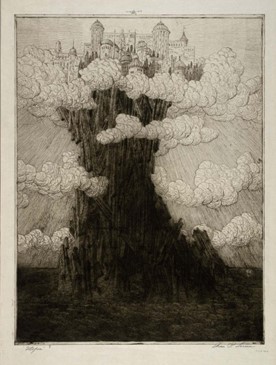- Home
- Editor's Notes
- Current Issue
- Riki Reflects
- Spiritual Traveler
- Starz Emporium
- Classifieds
- Advertise with Us
- Submissions
- Awards
- About Us
- Contact Us
Spiritualism: Achieving a Utopia for You in This Life
By Stephen William
.jpg) Exploring the Pathways to Inner and Outer Harmony Through Spiritual Practice By Stephen William, author of: ”Nostradamus His Prophecy Finally Explained.” Available on Amazon Kindle now. https://www.amazon.co.uk/dp/B098LS5PM7/ref=cm_sw_em_r_mt_dp_MBDF06G549ZKJ6XFKMCJ  UTOPIA COMING TO THIS LIFE BY SPIRITUAL MEANS? Imagine a world where harmony, compassion, and the highest aspirations of humanity are brought to life, not in some distant future or afterlife, but here and now. Throughout history, the idea of Utopia has tantalised philosophers, poets, and dreamers. Yet, for many, the journey towards that ideal seems forever out of reach. A mirage shimmering on the horizon. However, Spiritualism, with its promise of inner transformation and its focus on the cultivation of higher states of consciousness, offers an intriguing proposition: that Utopia is not a place, but a state of being achievable within this life. In this article, I would like to explore how Spiritualism, rooted in personal growth, compassion, and the pursuit of connection with something greater than oneself, can be a transformative force, enabling individuals and, by extension, societies to approach a Utopian existence here and now. We will trace the origins and core tenets of Spiritualism, examine its practical applications, and consider its potential for creating a lasting change in the lives of those who adopt its principles.  AN IMAGE OF UTOPIA CREATED IN 1919 . IT DEMONSTRATES A “CASTLE IN THE SKY “ OR UNATTAINABLE PERFECTION AS SIR THOMAS MORE ORIGINALLY CONCEIVED IT. HOWEVER WITH MYSTICISM WE CAN CREATE OUR OWN ACHIEVABLE PERSONAL UTOPIA WHICH WE CAN EXTEND TO OTHERS. The Nature of Utopia: Beyond PerfectionUtopia has been variously envisioned as a place of perfect justice, boundless creativity, or inexhaustible abundance. Yet, the very notion of perfection is fraught with paradox. The word “Utopia,” coined by Sir Thomas More in his 1516 work, literally means “no place” in Greek—suggesting that perfection may be an illusion, or at best, a direction rather than a destination.Spiritual traditions across cultures have long recognised that the pursuit of external perfection is rarely satisfying in itself. Instead, they suggest that true transformation occurs inwardly, through shifts in perception, attitude, and consciousness. Utopia, then, becomes a lived experience—one shaped not by external circumstances, but by the quality of our thoughts, feelings, and relationships. Understanding Spiritualism: A Brief OverviewModern Spiritualism, as a movement and a philosophy, emerged in the 19th century, especially in America and Europe, as a response to both materialism and the rigid dogmas of institutional religion. At its heart lies the conviction that reality is not limited to the physical world; rather, it is permeated by a spiritual dimension accessible to all.Core tenets of spiritualism include:
The Inner Landscape: Transforming Self as the Foundation of UtopiaThe first step towards achieving Utopia is an inward one. Spiritualists maintain that by transforming our inner world, we change the lens through which we experience reality. Inner peace, compassion, and understanding become the seeds from which a Utopian life can blossom.Practices Leading to Inner Harmony:
Spiritualism in Everyday Life: Manifesting Utopia Through ActionThe challenge and indeed the promise, of spiritualism lies in its application to daily life. How do we translate spiritual insights into actions that uplift ourselves and others?Compassion in Action:
Overcoming Barriers: Facing the Realities of Suffering and ImperfectionSkeptics may ask: Is it naïve to speak of Utopia in a world riven by conflict, poverty, and injustice? Spiritualism does not encourage us to ignore suffering, but rather to meet it with courage and compassion. By acknowledging pain and imperfection, and responding with wisdom rather than despair, we participate in the healing of the world.Many spiritual teachers emphasise the concept of acceptance—not as resignation, but as the starting point for meaningful change. We embrace ourselves and others as we are, while striving towards the highest good. One practical way Spiritualism does this is by demonstrating the reality of an Afterlife. This proof helps people accept the reality of physical death ,which we must all experience . However, the incentive for this acceptance is our continued existence in the Afterlife ,which many conventional religions use as a stick to beat their followers with despite offering no tangible proof of its existence . This makes people fearful of death and therefore creates misery for them in this incarnation. This often in the modern world actually causes them to reject all spirituality , as they do not want to think about eternal punishment for a possibly very small human transgression ,that they already regret in this life. Community and the Collective: Expanding the Circle of UtopiaThough spiritualism begins with the individual, its effects ripple outward. Communities grounded in spiritual values are more likely to foster cooperation, equality, and creativity. Spiritual groups often become incubators of social innovation—advocating for justice, environmental stewardship, and the upliftment of the vulnerable.A Utopian society, then, is not one in which problems never arise, but one in which individuals and groups are equipped to respond with wisdom, resilience, and love. Modern Expressions: Spiritualism in the 21st CenturyContemporary spiritualism embraces diversity, drawing on insights from psychology, neuroscience, and ancient wisdom and religious traditions alike. Practices such as mindfulness meditation, yoga, and holistic healing have entered the mainstream, helping individuals achieve greater well-being and connection.Digital technology, paradoxically, has both fragmented attention and enabled unprecedented opportunities for spiritual learning and community building. Online meditation groups, courses, and forums allow seekers to connect and support each other across the globe, nurturing the seeds of a Utopian culture. Steps Toward a Personal Utopia: Practical GuidanceFor those seeking to experience a taste of Utopia in this life, spiritualism offers a wealth of practical tools:
Conclusion: Utopia as a Living RealityThe dream of Utopia need not remain a fantasy reserved for philosophers or futurists. Through the lens of spiritualism, Utopia becomes a living, breathing possibility, one that can be realised, moment by moment, through the choices we make and the love we share. Knowing your ultimate destination ,the Afterlife and your deceased friends and loved ones are already there, helps you deal with the imperfect situations you encounter in this life. You know by “meeting” your departed loved ones that you one day will be free of the struggles and frustrations of this existence.By cultivating inner peace, compassion, and connection, we contribute to the creation of a world in which the highest human potentials are realised. In this way, Spiritualism is not an escape from reality, but a means of transforming it. Utopia, after all, is not “no place”—but every place where the light of spirit is allowed to shine. ©Stephen William International Copyright. My book which covers modern mysticism as well as Nostradamus’s , is available at only US $ 3.45 on Amazon Kindle or FREE TO READ if you are a Kindle Unlimited member. please follow this following link https://www.amazon.co.uk/dp/B098LS5PM7/ref=cm_sw_em_r_mt_dp_MBDF06G549ZKJ6XFKMCJ |
Share this article with friends!
|
Copyright © 1998 - 2025 Mystic Living Today All rights, including copyright, in the content of these Mystic Living Today web pages are owned or controlled for these purposes by Planet Starz, Inc. Terms of Service Disclaimer and Legal Information For questions or comment, contact Starzcast@mysticlivingtoday.com. Reproduction of this page in any form is not allowed without permission of the author and the owner of this site. All material on this web site, including text, photographs, graphics, code and/or software, are protected by international copyright and trademark laws. Unauthorized use is not permitted. You may not modify, copy, reproduce, republish, upload, post, transmit or distribute, in any manner, the material on this web site. Unless permissions is granted. |



